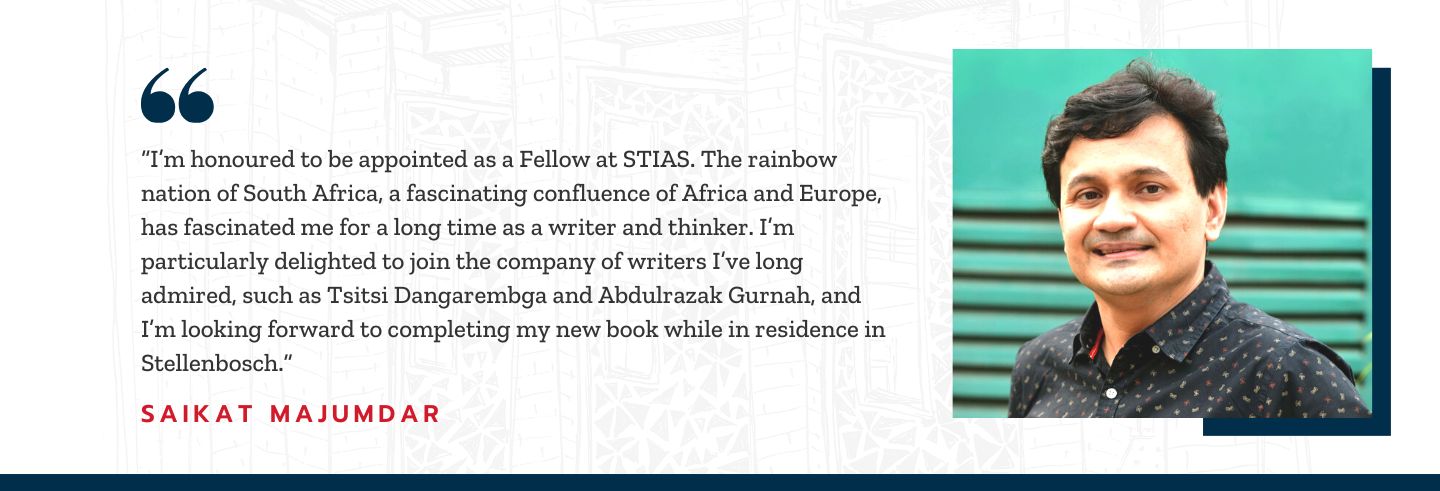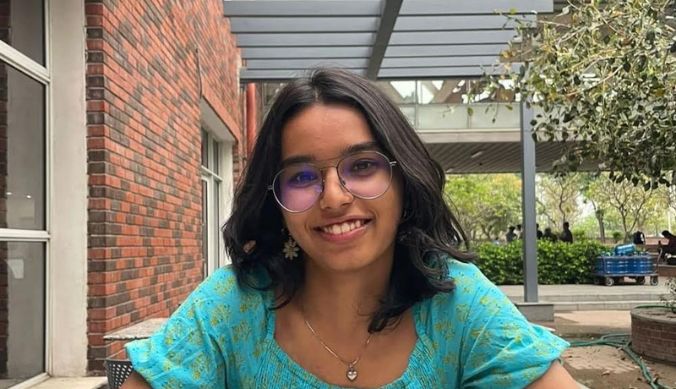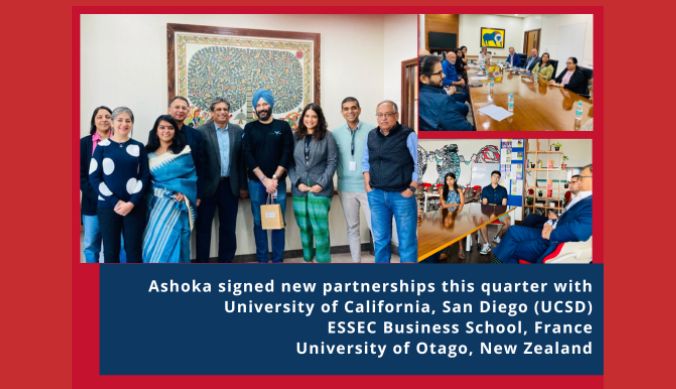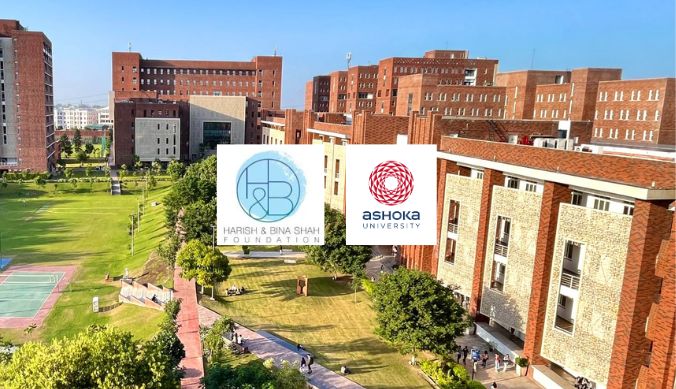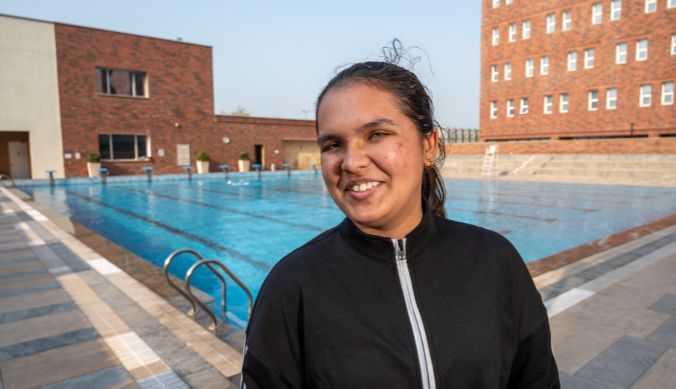Saikat Majumdar appointed a Fellow at the Stellenbosch Institute of Advanced Study, South Africa
Prof. Majumdar has been awarded the fellowship to support his research project – The Amateur: autodidactism and self-making in the postcolony, a book about unexpected forms of reading, writing, and learning as they unfolded on the corners of the historical British Empire

Office of PR & Communications
31 October, 2022 | readThe Stellenbosch Institute of Advanced Study, located in Stellenbosch, near Cape Town, is one of the leading research centres in Africa. Here, leading researchers and intellectuals from across the globe are supported to think innovatively and to pursue sustainable strategies to the challenges facing the world, with a special reference to, but not limited to Africa. Recent fellows include the writer Abdulrazak Gurnah, winner of the Nobel Prize in Literature, 2021; Tsitsi Dangarembga, novelist from Zimbabwe; James Ferguson, the leading African anthropologist; Derek Attridge, noted literary scholar.
STIAS launched the Nobel in Africa Initiative in partnership with Stellenbosch University, under the auspices of the Nobel Foundation and the Royal Swedish Academy of Sciences with funding from the Knut & Alice Wallenberg Foundation. The Nobel Symposium activities were initiated in 1965. Through the Initiative, STIAS will become the first institution outside of Scandinavia to host Nobel Symposia on behalf of the Nobel Foundation.
Saikat Majumdar has been awarded the fellowship to support his research project – The Amateur: autodidactism and self-making in the postcolony, a book about unexpected forms of reading, writing, and learning as they unfolded on the corners of the historical British Empire. It offers accounts of autodidactism and personal growth under forms of colonial rule and repressive or exclusionary systems of education – and the consequent amateurism that have shaped public intellectuals of wide and popular appeal.
The book draws on three locations: a group of black intellectuals in mid-century South Africa in the aftermath of the exclusionary Bantu Education Act of 1953, a number of 20th century Caribbean writers who offer diffident encounters with England as part of their literary bildung, and a group of writers from late-colonial and early-postcolonial India whose intellectual amateurism chart dissident relations with the British project of professionalizing a particular kind of colonial subject. The book will be published internationally by Bloomsbury, who has also published a collection of essays on this subject, The Critic as Amateur (2019), edited by Saikat and Aarthi Vadde from Duke University, with contributions from India, US, UK, Australia, and South Africa.
“I’ve been working and thinking about this project for several years now,” Saikat said. “the core question I’m trying to address is whether thinking and writing about art and literature is a specialist pursuit, or can anyone with passion for them join the conversation productively, irrespective of training or background. As a novelist who also writes about literature and education for the mainstream media, the idea of amateur, popular, or generalist criticism has occupied me for a long time. Looking at the growth and development of writers and thinkers who variously struggled with poor or exclusionary education systems in the colonized world but developed as entertaining amateurs has given me many insights.”
“South Africa, particularly black intellectuals under apartheid, play a crucial role in this book, so I’m excited to be able do some of the work while based at the Stellenbosch Institute of Advanced Study.”
Some of Saikat’s work on this subject has already been published – in the journals PMLA (Publication of the Modern Language Association) and New Literary History, and is forthcoming in the Cambridge Companion to the Essay, as well as in popular venues such as the Los Angeles Review of Books, Hindu, Scroll, etc.
“This project, along with the South African experience,” Saikat said, “I’m hoping, will also re-energize my teaching as a return to Ashoka after my sabbatical, particularly with my Foundation course, Literature and the World, and my course for English majors, Postcolonial Literature.”





